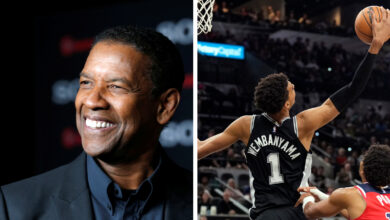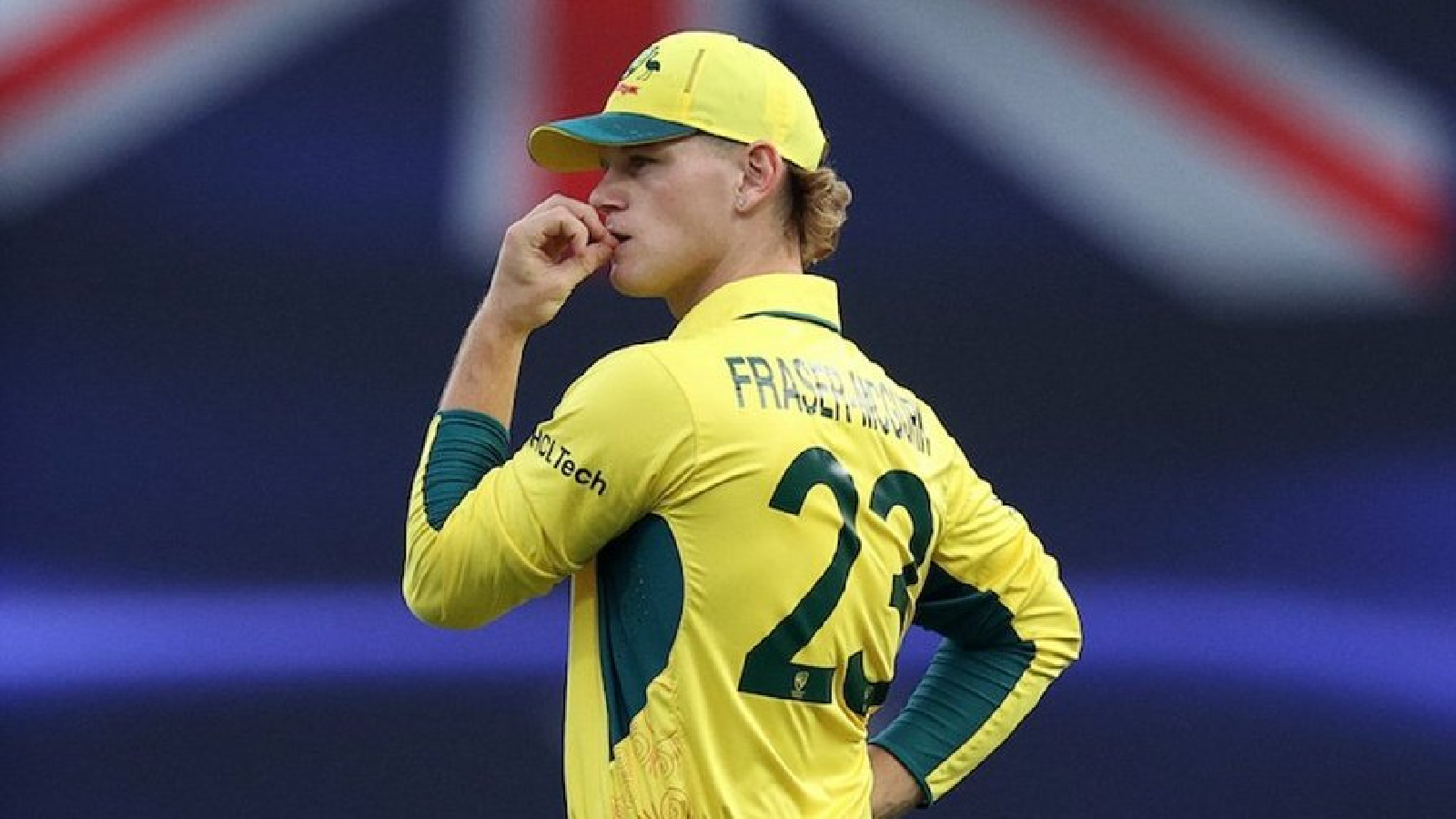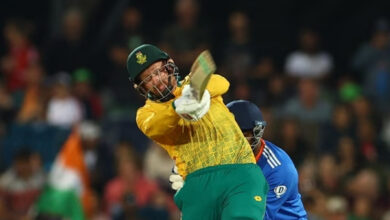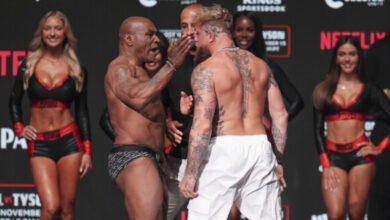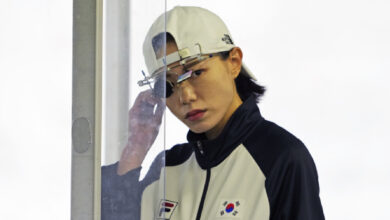Ian Nepomniachtchi: Russia’s next big hope to join long line of world champions is critic of Ukraine war

In February last year, as Russian troops breached Ukrainian defences and invaded their neighbouring country, Russian Grandmaster Ian Nepomniachtchi made his feelings known in two tweets.
“Hory has seen many Black Thursdays. But today is blacker than the others,” he said in the first one, posted the day the invasion started. The accompanying hashtags – #saynotowar, written in English and No War, written in Russian – left no doubts where he stood on the issue of Vladimir Putin’s invasion of Russia.
Three days later, he was even more eloquent in his criticism. “It is reported that negotiations are underway in Gomel. God grant that their result was a truce. I fear the price of the madness of the last days will be unimaginable and exorbitant. Can we afford our future now?” he said.
История видела немало чёрных четвергов. Но сегодняшний чернее прочих. #нетвойне #saynotowar
— Yan Nepomniachtchi (@lachesisq) February 24, 2022
https://platform.twitter.com/widgets.js
In the one year since the war has been fought, only a handful of Russian athletes have spoken out publicly against the invasion of Ukraine. Most of those have been tennis players, based away from Russia.
Сообщают, что в Гомеле проходят переговоры. Дай Бог, чтобы их результатом стало перемирие. Боюсь, плата за безумие последних дней будет невообразима и непомерна. По карману ли теперь нам наше будущее? #нетвойне #saynotowar
— Yan Nepomniachtchi (@lachesisq) February 27, 2022
https://platform.twitter.com/widgets.js
Here’s all you need to know about the 2023 world chess championship
Nepomniachtchi, though, is based in Russia and many of his sponsors in the past have included Russian companies like Sima Land (an online retail platform which, in 2021, made its employees participate in a pro-Putin flash mob), PhosAgro and Nornickel.
He also has a charitable foundation called Move to the Future, which organises competitions for youngsters in Russia, a chess school that holds tournaments for adults as well as hosts corporate events and owns a chess-themed cocktail bar.
In short, he had a lot to lose.
Despite that, he doubled down soon enough, becoming one of the 44 Russian chess players to write an open letter to Putin calling for a ceasefire.
“We are against any military action on the territory of Ukraine and call for an immediate ceasefire… For us, it is unbearably painful to see the catastrophe that is happening these days with our people. Chess teaches you to be responsible for your actions; each move is meaningful and a make can bring you to a fatal point of no return… now human lives, human rights and freedoms, human dignity, the present and the future of our countries are at stake,” read the letter.
Ian Nepomniachtchi stands before a colossal image of himself at the FIDE World Championship venue, with his own piercing gaze locked on him. As he prepares to compete against Ding Liren, the eyes of chess fans from all over the world are upon them: can he lay claim to the crown?… pic.twitter.com/J6Q88eQEV3
— International Chess Federation (@FIDE_chess) April 7, 2023
https://platform.twitter.com/widgets.js
It was a stance that earned him immediate condemnation from the Crimea-born Sergey Karjakin, the Russian grandmaster who had challenged Magnus Carlsen for the world title in 2016 but lost. In 2021, Karjakin had done some preparation work with Nepomniachtchi ahead of the latter’s world championship clash.
“Ian signing this letter became his ticket to Western events! He achieved what he wanted and got the chance to take part in the Kasparov “Grand Chess Tour” series, when Kasparov himself emphasised that Ian was playing only because he’d signed the letter,” Chess24 quoted Karjakin as saying on his Telegram channel.
Since those early days of the invasion, while Karjakin has managed to earn himself a six-month ban from FIDE for his views on the invasion and a state award (a medal of the order “For Merit to the Fatherland”) from the Russian government for the same reason, Nepomniachtchi has turned his focus on chess, rather than join the high-profile chess outcasts from the nation like the late Viktor Korchnoi, who defected from the Soviet Union, and Garry Kasparov, a vocal critic of the regime who is still in exile.
In March last year, Russian parliament passed a law which allows up to 15 years in prison to those who intentionally spread “fake news” about the military. A sizeable number of players who signed that letter chose to move out of Russia in the first few months of the war.
To emphasise how tricky it can be to criticise the war as a Russian, one only needs to look at the FIDE chief Arkady Dvorkovich, who was Deputy PM to Dmitry Medvedev for six years. When the invasion started, Dvorkovich told Mother Jones: “Wars are the worst things one might face in life … including this war. My thoughts are with Ukrainian civilians.”
Soon, under his leadership, Russian teams were banned from FIDE competitions and events were taken away from Russia.
These decisions put him in the crosshairs back home with a Russian lawmaker slamming him for ‘national betrayal’. Soon enough, according to an article on Chess dot com, he came up with another statement which was published on the website of a Russian foundation he was the chairman of: “I am sincerely proud of the courage of our soldiers, who at all times defended their homeland and freedom… a more just order will eventually be established on our planet, in which there is no place for either Nazism or the dominance of some countries over others… Today, Russia continues to live under harsh but senseless sanctions. But we will rise to this challenge.”
What chess means to Russia
For a country that has been smitten with chess since the Bolsheviks were in power, Russia dotes on its chess grandmasters. Such has been the nation’s dominance in the sport that from 1948 till the Soviet Union broke up, all world champions, except the American Bob Fischer, were from the USSR.
The sport has inextricable ties to Russian politics – both Vladimir Lenin and Joseph Stalin were known to be chess aficionados while revolutionary and Soviet politician Leon Trotsky also played the sport.
In his autobiography Mind Master, Viswanathan Anand writes about how chess was a “national obsession for the Soviets”.
“Everywhere you looked – parks, trains, smoke-filled club corners – you’d spot both old and young faces furrowed in quiet reflection, thumping pieces on the table or straddling a board on their knees. Brides added chessboards to their wedding trousseaus and when you travelled you got the feeling that every cab driver in the country could checkmate you with a smirk.”
But of late that success has been hard to come , at least in the world chess championships. The Russians are hoping Nepo will change that.
“The Soviet Union had an outstanding chess school that had been developed for many years and which was, in fact, inaccessible to Western players. When the Soviet Union collapsed, a lot of great coaches went abroad. And then the Internet appeared, and with it there are no problems at all in the exchange of information. Therefore, the entire Soviet school was taken over from us. Russia is still smaller than the Soviet Union – this is also an important factor,” Vladimir Kramnik, who in 2006 became the last Russian to win the men’s world chess championship, told Championat in October last year.
He went on to add: “However, in three of the last four matches for the world championship there has been a Russian – a serious indicator. Let’s hope that this time Ian will finally seal it.”
Know Nepo, a.k.a FrostNova
Born in the city of Bryansk, around 380 kilometers southwest of Moscow, Ian Nepomniachtchi could play chess before he was five years old. He learnt from seeing his grandfather Boris play his uncle Igor at home, He’s one of those players who is very expressive during games, and is known to make aggressive moves on the board.
“Just like Kung Fu Panda, there is no secret ingredient”, Ian Nepomniachtchi on his preparation for the match. pic.twitter.com/Uu5M80ngLf
— International Chess Federation (@FIDE_chess) April 6, 2023
https://platform.twitter.com/widgets.js
xxx
Nepomniachtchi almost became a professional esports player in DOTA. As a 20-year-old, he would sometimes spend 10 hours a day mastering the game. His gaming name was FrostNova. He eventually shifted focus to chess because at that time there was no money to be made playing esports. At the time he was in the top 15 in the FIDE rating l.
xxx
Nepo co-owns a chess-themed cocktail bar in Moscow’s Kudrinskaya Square, called Chess Club Moscow. It’s a place where fans can occasionally run into the World No 2 with his friends and those who have helped him.
💥 Facts you need to know about Ian Nepomniachtchi: ◼️ He was born on July 14, 1990.◻️ He learned to play chess at the age of four.◼️ He won the European Youth Chess Championship three times: in 2000 (U10), 2002 (U12) and 2003 (U12).◻️ In 2002 he won the World Youth Chess… pic.twitter.com/ps0Wd9GLjb
— International Chess Federation (@FIDE_chess) April 5, 2023
https://platform.twitter.com/widgets.js
xxx
Playing online chess comes with its own pitfalls. A mouse slip, as Magnus Carlsen experienced on Thursday, or a dodgy internet connection, can make you lose. But Nepomniachtchi has lost an online game due to possibly the most comical reason: his cat, which jumped on him while he was playing against Carlsen online in the Magnus Carlsen Invitational tournament in 2021. He later admitted that the cat had made him lose concentration.
“Since I did alright today, the cat won’t be punished,” the ponytailed Russian said the next day with a smile. While he is very expressive during games, he can be unflappable defeat. In the 2021 world championship, when Carlsen took a 1-0 lead, he was asked how he would bounce back. “Hopefully, with style,” said Nepo, chuckling at his own joke.



